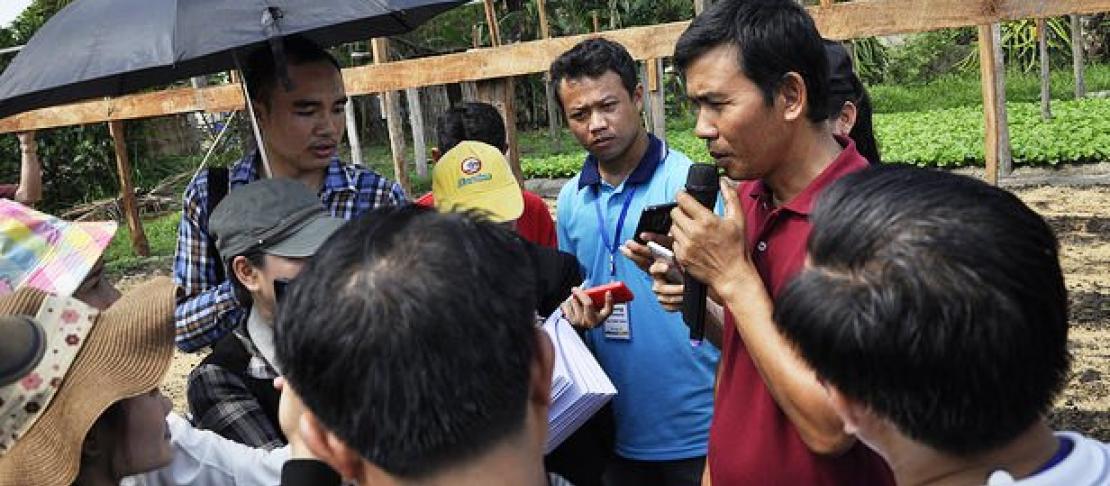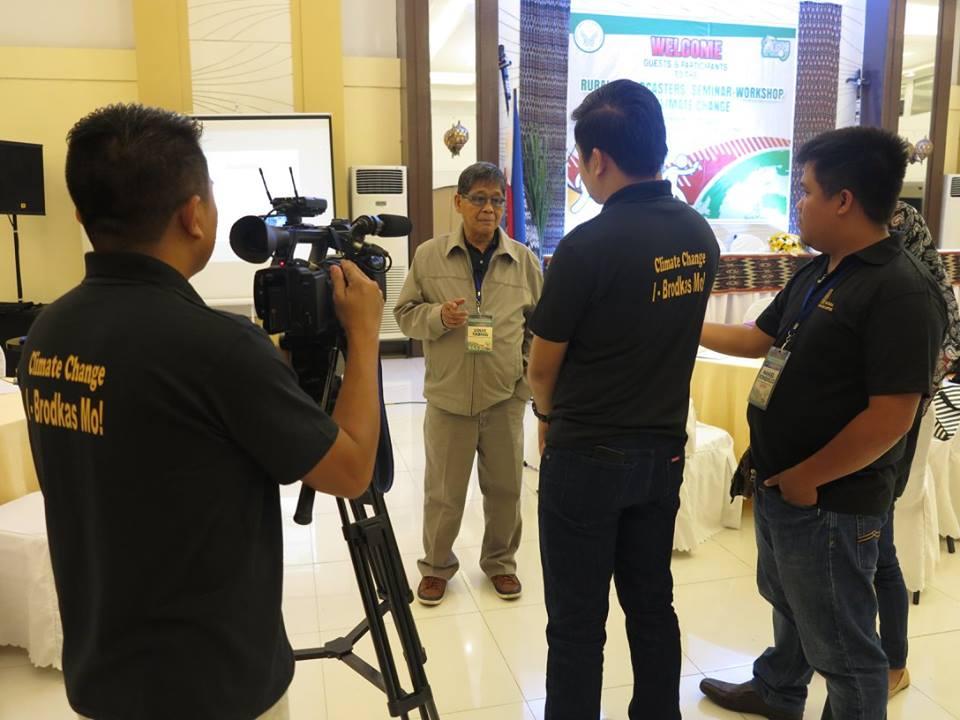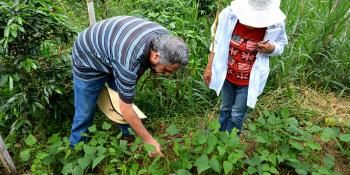Rural folks to hear more climate-smart agriculture options ‘on-air’

Rural people are most vulnerable to climate risks and challenges, yet, they are the least informed on climate-smart options in agriculture that would help them better deal with climate-related concerns.
Radio remains to be a dominant source of information and entertainment in the Philippines with over a hundred radio stations across the country and 85% of Filipino households tuning in every day. This gives radio vast power in providing rural farmers and fisherfolks with relevant and timely information needed to suitably and effectively respond to climate risks and challenges.
In the Philippines, a radio campaign is stepping up efforts to deliver climate information especially in rural and remote areas where most of our food producers reside.
The Philippine Federation of Rural Broadcasters (PFRB) is implementing a pilot radio campaign: ‘Climate Change i-Broadkas Mo’ (‘Climate Change: Broadcast It’). It aims to increase awareness and understanding of rural people on concepts and issues around climate change and agriculture. The campaign builds on the power of radio in influencing rural people to maintain or increase their agricultural productivity amid climate challenges and help mitigate climate change by reducing carbon emissions in farming systems through the adaptation of climate-smart practices and technologies.
It kicked off with a series of media workshops co-organized by the PFRB with the Department of Agriculture (DA), and the CGIAR Research Program on Climate Change, Agriculture and Food Security in Southeast Asia (CCAFS SEA) from October to November 2015 in strategic areas of Luzon (Muñoz, Nueva Ecija), Visayas (Kalibo, Aklan), and Mindanao (Koronadal City, South Cotabato). A total of 180 participants attended the seminar-workshops, which include practicing broadcasters and government information officers.

An expert rural broadcaster explains the facets of climate change reporting to workshop participants. Photo: PFRB
During the workshops, participating broadcasters wrote easy-to-read radio scripts for expert interviews, program segments, and radio programmes. The materials covered various topics like climate change concepts, Climate-Smart Villages, climate-smart agricultural practices and technologies, and urban agriculture, among others. Subject matter experts from government agencies (i.e. DA, Philippine Rice Research Institute and the Department of Environment and Natural Resources) and state colleges and universities vetted on the draft scripts for technical accuracy. These interviews and radio scripts, written in local languages (Tagalog, Ilocano, and Visayan), were distributed to 152 PFRB members in Luzon, Visayas, and Mindanao for airing.
As an incentive, participating broadcasters will be awarded based on listenership and program impact. A web portal concerning practical and locally relevant information will also be set up for easy reference by broadcasters and the public.
This pilot campaign will be assessed toward the project end in terms of usability and acceptance among intended users and whether the agricultural innovations shared were actually applied. Results of the assessment will be the basis of a similar or modified campaign that will be cascaded in the other focus countries of CCAFS SEA, namely, Cambodia, Laos and Vietnam.
Eventually, the campaign seeks to have a cascading effect among local leaders and policymakers to mainstream climate-smart agriculture into policies and programs for implementation.
Read more
- Working Paper on Climate change reporting for rural broadcasters: Engaging rural media for community mobilization on climate-smart agriculture in the Philippines
- Tune in: Philippine rural broadcasters to promote climate-smart agriculture
- Philippines: Radio campaign to promote climate-smart technology in farming communities
- Communicating climate change: bridging science and society
- Laotian media professionals trained in climate change
- Brainstorming with the media on climate change in Vietnam
- CCAFS-SEA kicks off first media workshop on how to report about climate change with impact
Bernadette Joven is a senior communication specialist for CCAFS SEA and the International Rice Research Institute.



